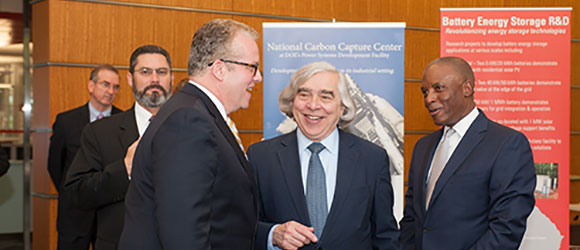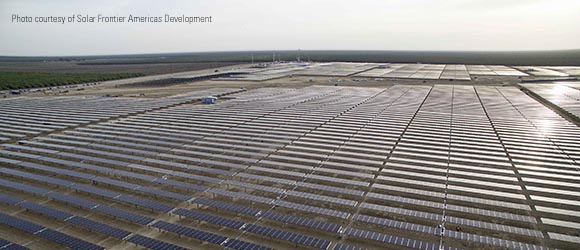Three of the Vogtle 3 & 4 co-owners have voted to move forward with construction
<h3>Oglethorpe Power has an extension until 5 p.m. Tuesday to vote. A “no” vote by Oglethorpe Power would force project to be canceled.</h3>
<h3> </h3>
<p>Three of the four Vogtle co-owners – representing 70 percent of the ownership – have voted in favor of moving forward with completion of the project. In contrast to the decision made by the other three co-owners, Oglethorpe Power has asked for an extension and demanded concessions to avoid obligations that it undertook when it became an owner of the project. All of the remaining co-owners have agreed to the extension in order to allow Oglethorpe Power more time to consider its vote.<br>
<br>
Vogtle 3 & 4 is the largest jobs-producing construction project in Georgia, employing more than 7,000 workers, and will be a 60-80 year asset delivering affordable, carbon-free energy to the state, which Oglethorpe Power recognized in statements to the Georgia Public Service Commission (PSC) less than a year ago. The project will be canceled to the detriment of the citizens of Georgia if Oglethorpe Power does not vote to move forward under the current ownership structure.<br>
<br>
“We hope Oglethorpe Power joins us in doing what is best for Georgia’s citizens and votes tomorrow to fulfill its obligation to complete this project which is critical to Georgia’s energy future,” said Paul Bowers, chairman, president and CEO of Georgia Power.<br>
<br>
“The MEAG Power Board voted unanimously to support completion of the project, taking into account the environmental and economic benefits of the project to the state,” said Jim Fuller, MEAG Power President and CEO. “We are disappointed that Oglethorpe Power has not yet joined us in agreeing to complete the units for the future of Georgia.”<br>
<br>
“Dalton Utilities believes that continuation of the Vogtle Project is in the best interests of its customers,” said Tom Bundros, CEO of Dalton Utilities. “We hope that OPC will realize the benefit of the Vogtle Project to its customers and join us as we move forward.”<br>
<br>
Last year, all four of the project co-owners presented a unified recommendation to the PSC to continue construction of Vogtle 3 & 4 following Westinghouse’s bankruptcy in 2017. At that time, all four of the project co-owners considered their own costs and fully acknowledged and accepted possible risks associated with continuing construction. This understanding was reaffirmed again last year when all four co-owners voted to continue construction.<br>
<br>
Despite this, in recent weeks Oglethorpe Power has continued to demand Southern Company shareholders and ultimately Georgia Power customers accept Oglethorpe’s risk in the project even though all four co-owners fully understood and voluntarily accepted their own risks when they sought to become an owner at the project’s inception. Even though Georgia Power is under no obligation to do so, the company provided several proposals to Oglethorpe Power to help give them additional financial support and certainty for their ratepayers.<br>
<br>
Instead of taking a long-term view, Oglethorpe Power is using the vote to try to burden others with its obligations and extract unreasonable concessions.<br>
<br>
While Oglethorpe Power implies it abdicated its responsibilities to its customers and relied solely on representatives from Southern Nuclear on the budget, Oglethorpe Power CEO Mike Smith said in 2017:<br>
<br>
OPC has confidence in our revised capital budget for our 30 percent of the project and our financial strength to manage our portion. Principally Oglethorpe is choosing to focus on the long-term view. We recognize the benefits of fuel diversity and stable priced, emission-free power for the next 60 to 80 years. Mike Smith in front of the Georgia Public Service Commission in August 2017<br>
<br>
Vogtle units 3 & 4, if continued, will be the first new nuclear units to be built in the United States in more than 30 years. The new units will generate enough emission-free electricity to power approximately 500,000 homes and businesses.<br>
</p>

